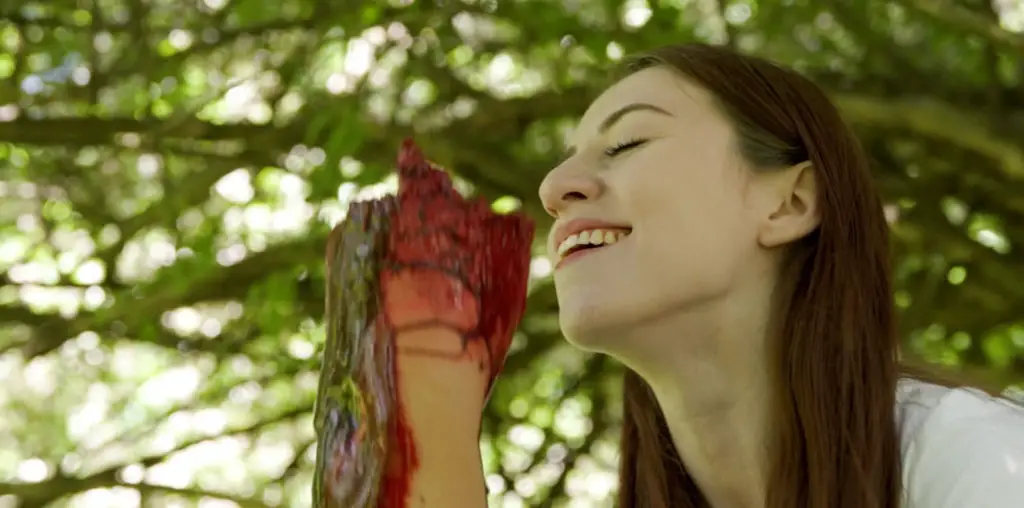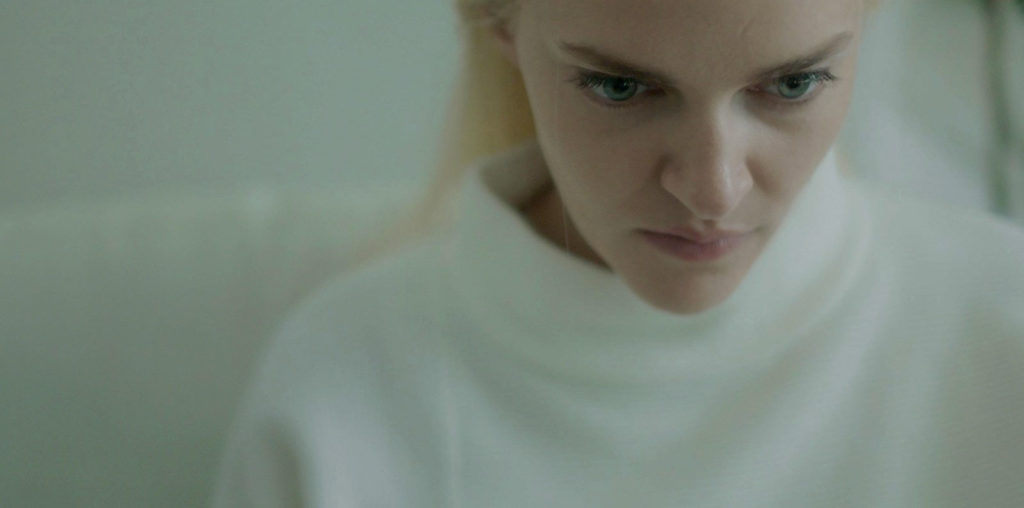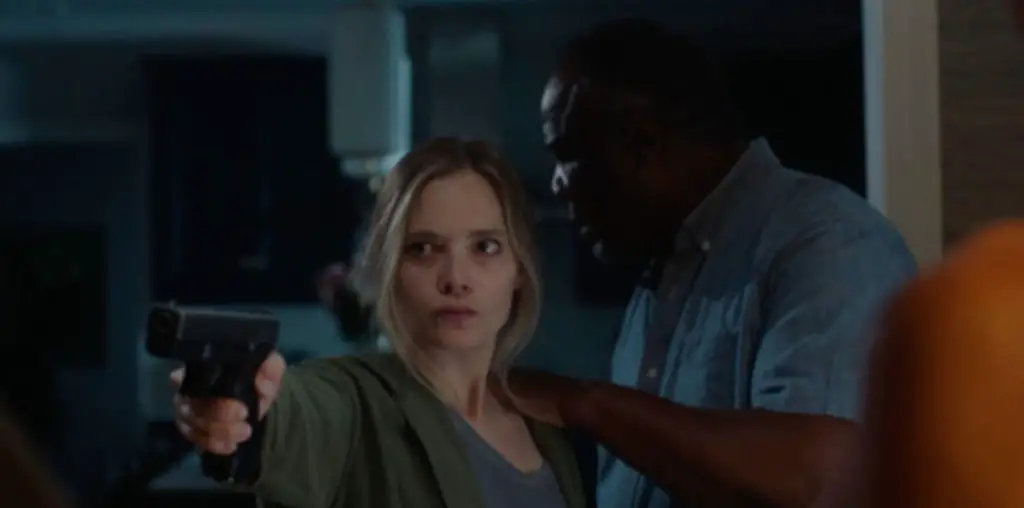
Director-writer Emilio Mauro astutely summarizes the cultural challenges in our society in his tense drama Another Day in America. Inspired by an actual event, the dark narrative follows disparate characters through a corporate workday at an incredibly dysfunctional office. There’s no plot, per se; rather, Mauro spools out a day in the life of the employees and customers of the business.
As the film opens, the Human Resources manager for the company, Tracy (Alexis Knapp), is firing one of the employees, Manny (Christian Trotta), based on vile social media posts he made years ago. While he is outraged that someone from his past could eighty-six his career, he unleashes enough abusive vitriol on Tracy during his meeting to get him fired immediately.
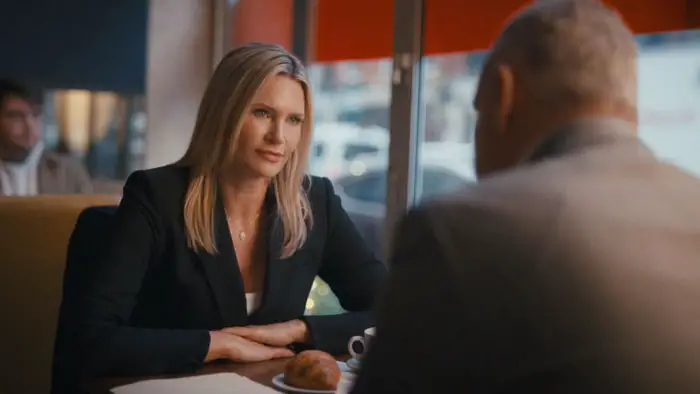
“…Tracy is firing one of the employees, Manny, based on vile social media posts he made years ago.”
Another Day in America is indexed on hours of the day, opening at 9 AM and ending with a final vignette at 4 PM. Each hour comes with a subtitle, the first being “Time doesn’t heal all wounds.” As the morning proceeds, the employees stumble into work after a night where a number of them had gone out drinking. They are hungover, pissed off, disenchanted, and they angrily fall on each other like wolves.
Tracy’s challenges are not over with the exit of Manny. She must then deal with the hyper-mania of another very angry business stiff, Greg (Ritchie Coster), who uses aggressive, non-corporate language as a default. He wants one of the young women in the company, Erin (Daphne Blunt), fired for having a sexual relationship with a key customer. Greg is also having a meltdown because Justin (Gary M. Bloom) hasn’t come to work, and he needs deliverables from him for a client.
This office is brimming with tension and rage. While some of the female characters have their flaws, they are wildly surpassed in the race to the bottom by the males. The men in this film are hot garbage. They are walking incarnations of all manner of unpleasantness. The ones who aren’t incredibly misogynistic are either racists, stalkers, addicts, boundary-challenged deviants, or violently disturbed individuals. They make up a rogues gallery like nasty updates to the Commedia dell’arte archetypes.
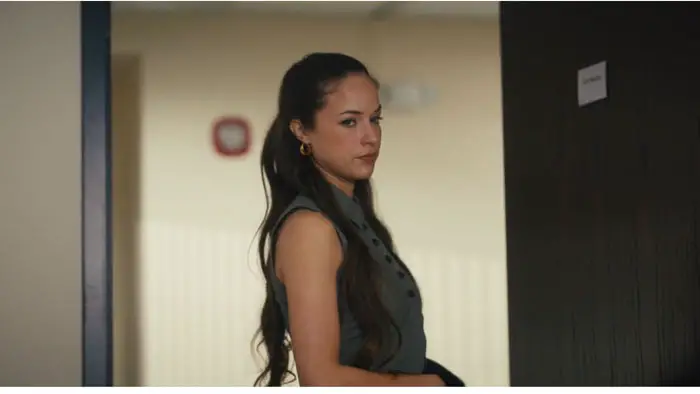
"…Mauro forces us to look into that mirror..."
